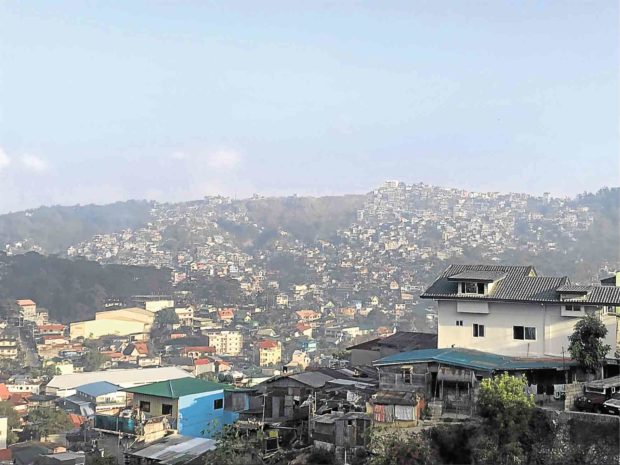Roles of DENR, DPWH in Baguio decay up for scrutiny

Credit to Author: besguerra| Date: Sun, 04 Aug 2019 21:17:31 +0000
BAGUIO CITY, Benguet, Philipines — The role played by national agencies that led to Baguio’s overdevelopment will be addressed once Malacañang issues a moratorium on building construction and tree-cutting in the city, a top city official said last week.
There have been occasions when developers have been able to secure permission from head offices of the Department of Public Works and Highways (DPWH) or the Department of Environment and Natural Resources (DENR) when the city government rejects their applications for taller buildings or for cutting trees, Bonifacio de la Peña, city administrator, said in a recent news briefing.
Mayor Benjamin Magalong earlier asked Malacañang for an executive order that would freeze the processing and issuance of building and tree-cutting permits for a year to allow his administration time to rehabilitate vital utilities like the sewers.
Policy reforms
The building moratorium will not rescind permits already issued to ongoing building projects that have exceeded the eight-story ceiling set by a building ordinance, De la Peña said.
“We cannot remove those floors anymore,” he said, although the city government had at times refused to issue occupancy permits for extra floors.
But policy reforms may prevent future projects from exceeding the city’s skyline, he said.
The draft final report of Baguio’s carrying capacity said 52 buildings had exceeded eight stories and occupied 2,313.7 hectares of its territory.
The report was presented at a public consultation in February by a team commissioned by the National Economic and Development Authority.
De la Peña, former dean of the Saint Louis University’s College of Engineering, said the moratorium would also allow the city government to review its own zoning policies regarding basements which were not regulated.
Some buildings have excavated deeper to build underground floors for parking or for additional store or office spaces.
De la Peña also said they might ask the city council to consider abolishing Baguio committees or boards granting exemptions from zoning and building ordinances.
Magalong said the proposed moratorium was being worked out by Environment Secretary Roy Cimatu and Interior Secretary Eduardo Año.
The mayor’s initiative comes two months after a petition circulated online seeking a stop to high-rise building projects in the city that was devastated by a 7.7-magnitude earthquake on July 16, 1990.
Steep slopes
The moratorium would also affect informal settlements along steep slopes.
The DENR has put out a land susceptibility map which identified 58 villages in lands that have “very high susceptibility to landslides.”
Session Road at the city’s central business district, where most tall buildings have been put up, is on that list of villages. The remaining 114 villages are concentrated in areas with “high susceptibility.”
The DENR map also identified 129 potential or active sinkholes in eight villages, the biggest with openings as wide as 60 meters. —Vincent Cabreza